The Order of Christian Funerals │ by Deacon Marc
The Order of Christian Funerals

When I was 14, one of my closest friends passed away. I was confused. I was angry. I didn’t know what to expect. Thankfully, I had my parents to walk me through and support me through the journey. I can remember vividly walking into the funeral home as a 14 year old boy. I showed no emotion. My mind was swirling. I was thankful to see my friend one last time. I did begin to find some joy when we were led in prayer by a priest which was followed by sharing stories. I spoke about the times we went camping and the mentoring he provided me as a young scout. The following day, we then went to the Catholic Church were we celebrated the Mass. I can remember my friend being wheeled in his casket down the long aisle. Within the Mass, my feelings all came to a head and this 14 year old strong boy started to cry, really cry. I finally allowed myself to surrender in the presence of God to all the emotions I was feeling. As he was carried out of the Church, I can clearly remember singing the hymn “On Eagles Wings” and asking God to help strengthen me. We left the church and began the procession to the cemetery. At the cemetery, the crying continued but I received comfort when the priest explained we were going to trust my friend to God. The parents wanted to witness his final placement privately. Therefore, after we finished the prayers, everyone started to leave. I was one of the last. I walked up and tapped on his casket twice asking God to care for my friend and to strengthen me. It was not long after that final goodbye that the tears dried up. I went to the reception where we continued to share memories of my friend.
Unbeknownst to me, at that time, I experienced the beauty of the Order of Christian Funerals and its three parts. The church has the tradition of walking individuals through three distinct parts: the Vigil, the Funeral Liturgy (typically a Funeral Mass), and the Committal. These parts represent a journey from the home, to the church, and then to the cemetery. These parts all include time for prayer and to varying degrees time to remember the individual who passed away. Each of these traditions is designed to help individuals spiritually and psychologically move through the experience of losing someone and transitioning to a new way of life without that person. The practices of the Order of Christian Funerals are built on many years of tradition, scripture, and Church teachings. Hence, there is great wisdom and beauty in this practice.
While there is great beauty and wisdom in the Order of Christian Funerals, our world today does not always embrace this tradition. As a society today, we often want things done quickly. All too often I see families combining the three parts so that they take place back, to back, to back. In other cases, individuals will skip one or more parts. In doing so, individuals are often not only robbing themselves of opportunities to grow through this process both spiritually and psychologically, but in many cases they are foregoing graces for themselves and the deceased. I am so thankful I was able to experience the Order of Christian Funerals when my friend passed away. I was able to say goodbye to my friend, grow in love for God, and embrace a faith-filled community. It was truly an experience of filling the void of loss with faith.
Deacon Marc Nestorick
Outreach Manager
Catholic Funeral & Cemetery Services of Colorado
For more information, visit our website: https://cfcscolorado.org/services/funeral/


